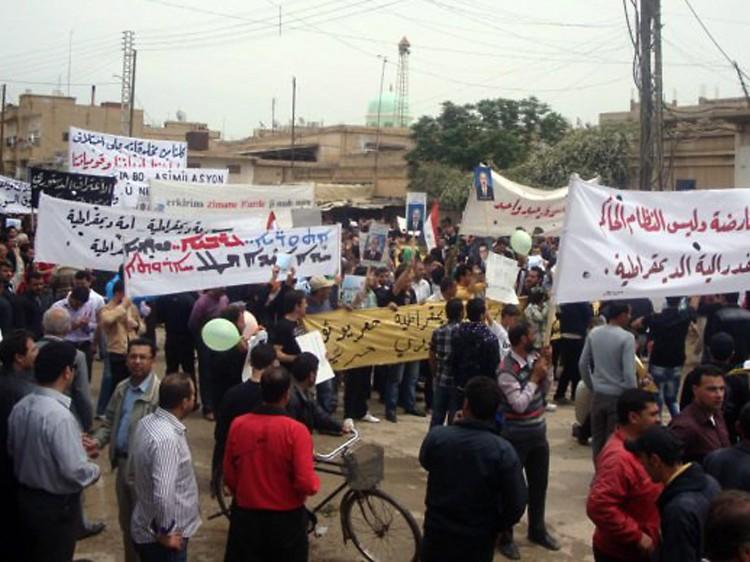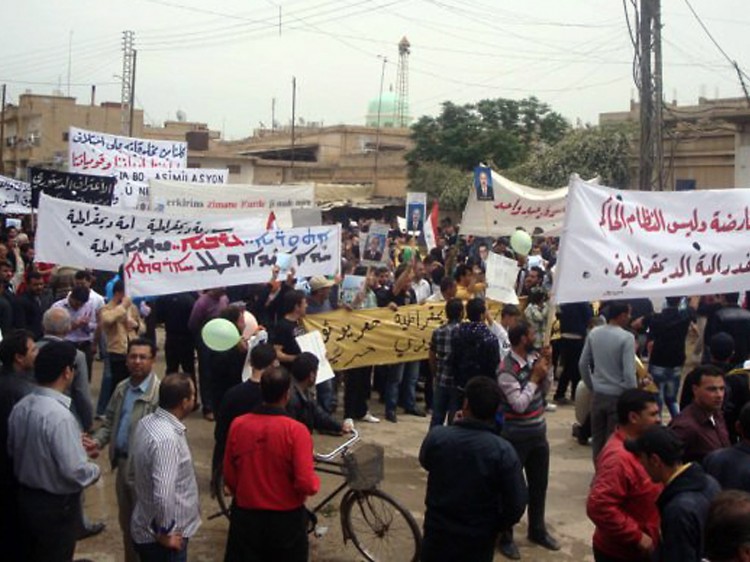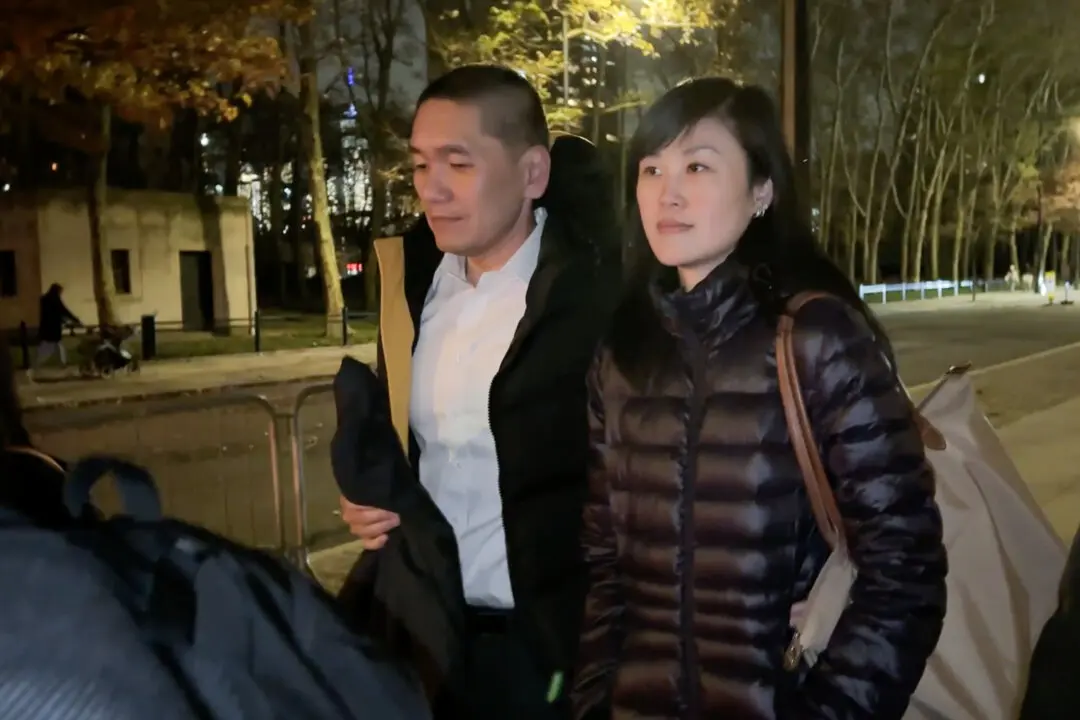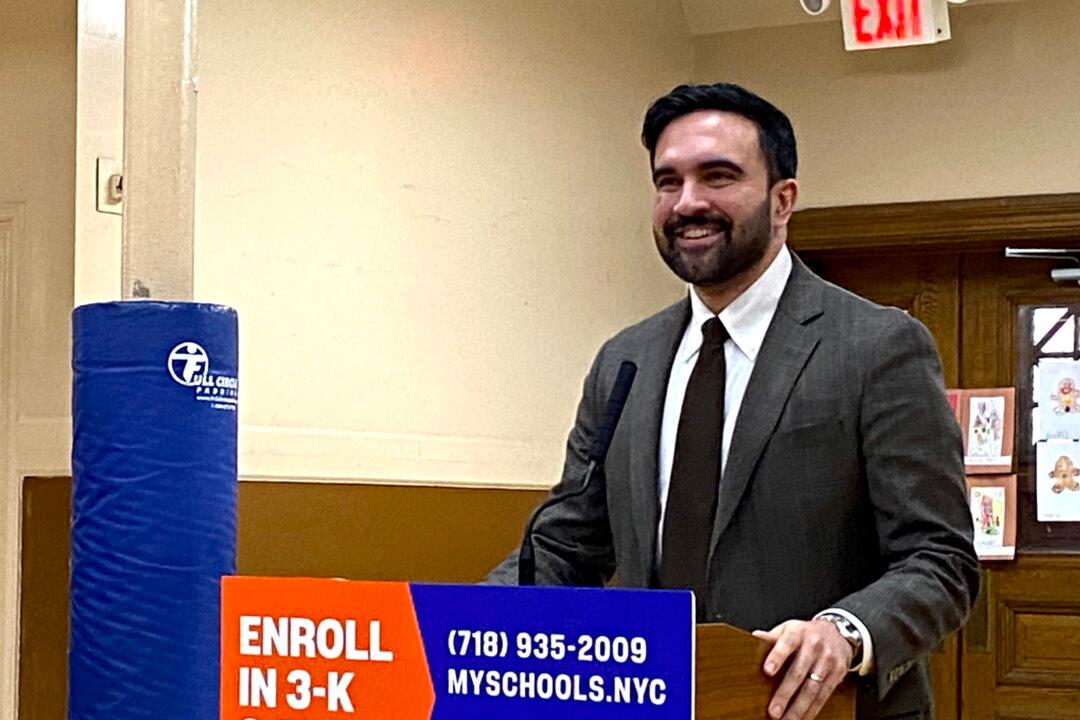They were rounded up at random, boys and men in the Syrian coastal city of Banias, taken to a nearby stadium, blindfolded, and their hands strapped while forced to kneel down. Then they were savagely beaten by Syrian soldiers and forced to acknowledge Syrian President al-Assad as their ‘master.’
This scene was recounted by a 25-year-old university student, who was kidnapped together with his 73-year-old father and dozens of other men in his neighborhood in Banias on May 8. Despite the tight control on the Internet and other communication channels, he was able to tell his story to Amnesty International. Human rights organizations estimate 1,100 people have been killed since the demonstrations calling for political reform started in Syria.
After being taken from their homes the men were put on buses. Once on the bus, three soldiers started hitting the men at the front of the bus. The soldiers took them to a local sports stadium. “When I stepped down off the bus, they blindfolded me and tied my hands in front of me with plastic wires.”
The men were forced to kneel down in the parking lot. There were hundreds of men there, according to the student’s account. The soldiers then walked around “slapping us hard in the face, kicking us with their military boots all over our bodies, especially our backs, and beating us with coshes, batons, and clubs.”
Some detainees were taken away from the crowd so the soldiers could beat them even harder.
“One came to me as I was sitting on my knees, placed his shoe on my head and forced it down until my face touched the floor. He asked me: ‘Who is your master?’ I said, ‘Bashar al-Assad.’“
A soldier gave the young student’s friend the same treatment, banging his head on the ground until his nose and mouth bled. The soldier asked the young man over and over, ‘Who is your God?’ He left him alone only when the young man replied, “Bashar al-Assad.”
Two incidents especially bothered the student. One was about his cousin, who was also detained. “His eyesight is so weak that he is almost blind. He told the security, “I can’t see. I have a card that shows I have disabilities.” The soldiers came over to him and beat him harshly. Blood ran down his head on both sides from behind his ears.
The other incident related to a boy of no more than 15 years old. One of the boy’s hands had blisters on it. “I asked fellow detainees what had happened to his hand and they told me the blisters were caused by the security personnel burning him using a lighter.”
The next day, the men were not beaten. Many were told they would be released, but some are still detained today, according to the student. Before they were released they had to pass by representatives from several different security agencies, if their names were not on any of the lists, they could leave.
This scene was recounted by a 25-year-old university student, who was kidnapped together with his 73-year-old father and dozens of other men in his neighborhood in Banias on May 8. Despite the tight control on the Internet and other communication channels, he was able to tell his story to Amnesty International. Human rights organizations estimate 1,100 people have been killed since the demonstrations calling for political reform started in Syria.
After being taken from their homes the men were put on buses. Once on the bus, three soldiers started hitting the men at the front of the bus. The soldiers took them to a local sports stadium. “When I stepped down off the bus, they blindfolded me and tied my hands in front of me with plastic wires.”
The men were forced to kneel down in the parking lot. There were hundreds of men there, according to the student’s account. The soldiers then walked around “slapping us hard in the face, kicking us with their military boots all over our bodies, especially our backs, and beating us with coshes, batons, and clubs.”
Some detainees were taken away from the crowd so the soldiers could beat them even harder.
“One came to me as I was sitting on my knees, placed his shoe on my head and forced it down until my face touched the floor. He asked me: ‘Who is your master?’ I said, ‘Bashar al-Assad.’“
A soldier gave the young student’s friend the same treatment, banging his head on the ground until his nose and mouth bled. The soldier asked the young man over and over, ‘Who is your God?’ He left him alone only when the young man replied, “Bashar al-Assad.”
Two incidents especially bothered the student. One was about his cousin, who was also detained. “His eyesight is so weak that he is almost blind. He told the security, “I can’t see. I have a card that shows I have disabilities.” The soldiers came over to him and beat him harshly. Blood ran down his head on both sides from behind his ears.
The other incident related to a boy of no more than 15 years old. One of the boy’s hands had blisters on it. “I asked fellow detainees what had happened to his hand and they told me the blisters were caused by the security personnel burning him using a lighter.”
The next day, the men were not beaten. Many were told they would be released, but some are still detained today, according to the student. Before they were released they had to pass by representatives from several different security agencies, if their names were not on any of the lists, they could leave.





